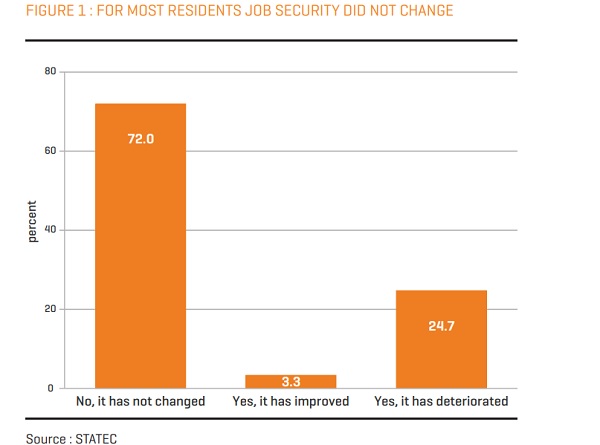 Credit: STATEC
Credit: STATEC
The COVID-19 crisis has worsened job insecurity for 25% of Luxembourg residents, according to STATEC's latest publication.
STATEC conducted a national survey, in collaboration with TNS Ilres, on the social and economic impact of COVID-19 in Luxembourg. The results portray life in lockdown, as well as changes in perceptions and in the employment and financial situation of Luxembourg’s residents.
Indeed, the lockdown period forced many companies to temporarily shut down, forcing people into temporary or full unemployment. Additionally, the heavy (expected) economic recession that will follow the pandemic might decrease the chances of re-employment, increase the share of people in long-term unemployment and worsen the perspectives about the future for those still in employment, according to STATEC.
The STATEC COVID-19 Social and Economic Impact Survey thus revealed that whilst 75% if residents saw no change to job security since the start of lockdown, this situation worsened for nearly a quarter of the resident population. Fear about the future of one’s own job concerned mainly people with secondary (45.1%) and tertiary (36.4%) education, people in the age bracket between 35 and 54 and those working from home (53.5%). The partial unemployment scheme imposed by the pandemic was a source of job insecurity for 1 out of 16 residents. A decrease in income and in the ability to save money, as well a deterioration of mental and physical health, are among
the main correlates of job insecurity.
Figures also indicate that job insecurity is equally distributed between men and women. It mainly concerns Luxembourg nationals, followed by French and Portuguese nationals residing in the country.








